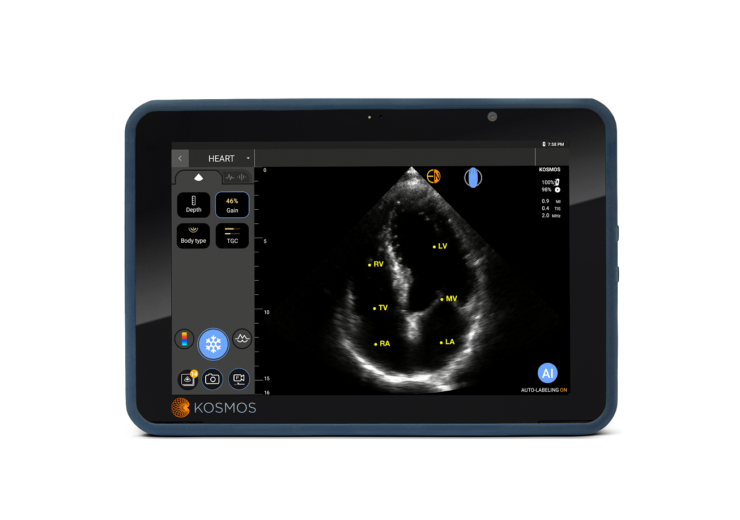The Kosmos platform was previously operated using Kosmos Bridge, which was specifically designed for medical use, with minimal surface area and system buttons protected with sealed silicone rubber

EchoNous’ Kosmos Bridge. (Credit: EchoNous, Inc.)
US-based medical devices manufacturer EchoNous has teamed up with South Korean electronics company Samsung, to enhance its AI-powered ultrasound solution, Kosmos.
Under the alliance, EchoNous will run its Kosmos platform using Samsung’s off-the-shelf Galaxy Tab Active Pro tablets, of model 12.0 and above.
The Kosmos platform has previously been operated using Kosmos Bridge, the company’s custom-designed display.
Kosmos Bridge was specifically designed for medical use, with minimal surface area and system buttons protected with sealed silicone rubber.
The Kosmos product will continue in the market, and will be compatible with the Galaxy Tab Active Pro tablets, which feature superior speed, power, and battery life.
The compatibility will reduce the overall cost of the Kosmos platform, and creates more options for medical practitioners and hospital procurement staff, said the company.
EchoNous CEO Kevin Goodwin said: “Even for the largest medical providers in the world, every dollar saved is one that can be spent saving another life, and this alliance with Samsung makes it possible for our platform to run on a more economical, off-the-shelf tablet.
“Doctors can now use a tablet that they may already be familiar with and it will still run our platform flawlessly because of its inherent power.”
Established in 2016, EchoNous is engaged in developing intelligent, ultra-portable, AI-guided point-of-care ultrasound (POCUS) tools and software.
Kosmos is designed to provide diagnostic quality imaging, with ultrasound, ECG, colour pulsed-wave and continuous-wave Doppler capabilities.
The handheld device also serves as a digital stethoscope, and facilitates AI-guided heart, lung, and abdominal scanning, said EchoNous.
The company claims that Kosmos is the only such device to provide diagnostic-quality scans while meeting HIPAA requirements for data collection, storage, and transmission.
Goodwin added: “Our overarching goal is to democratize the use of ultrasound in bedside medicine. When we can utilize existing technology for that purpose, we make these tools that much more accessible.
“And Samsung customers – even if they’re not medical personnel or never need an ultrasound – can feel good knowing that the devices they depend on for work and play are also helping diagnose patients and save lives around the world.”
